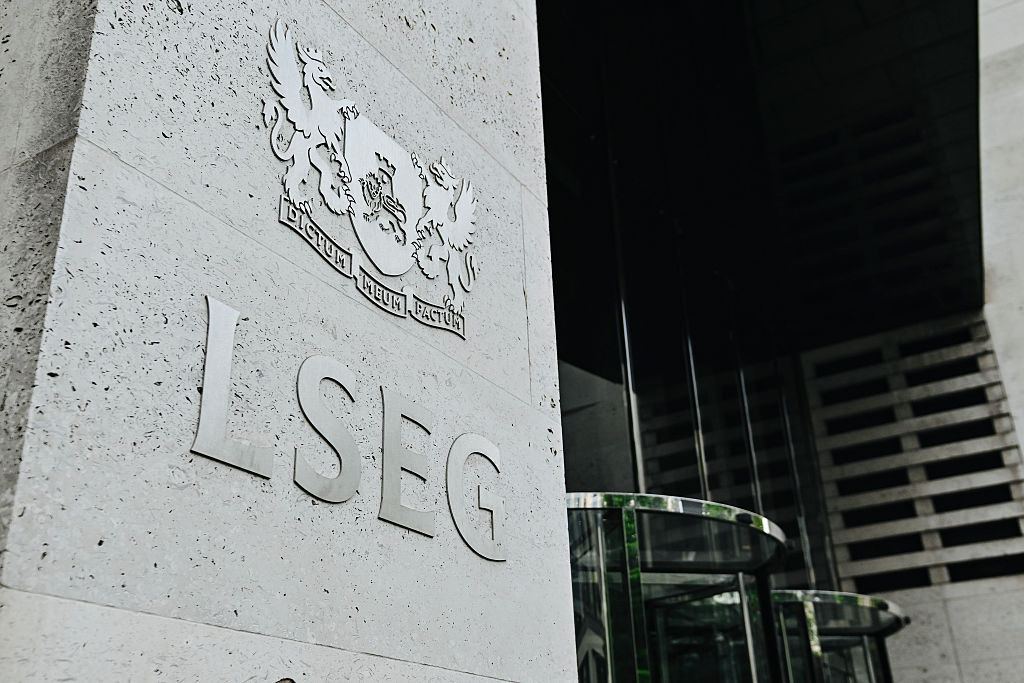Is Aim finally coming of age?
The Aim market of mostly smaller companies has traditionally been seen as a bit of a backwater. Is it time to change that view? Matthew Partridge talks to Paul Latham and Richard Power of fund management company Octopus.

Get the latest financial news, insights and expert analysis from our award-winning MoneyWeek team, to help you understand what really matters when it comes to your finances.
You are now subscribed
Your newsletter sign-up was successful
Want to add more newsletters?

The Aim market (formerly the Alternative Investment Market)has traditionally been seen as a bit of a backwater. It was launched in 1995 in attempt to give smaller companies that were poorly served by the main market of the London Stock Exchange a chance to raise capital by going public. However, up until recently, it's proved to be a bit of a dud, notorious for being the haven for illiquid, sometimes dodgy, companies. For example, if you put £1,000 into the FTSE All-share index it would now be worth £5,003, while the same sum invested in Aim would only have grown to £1,390 less than a third of that amount.
However, over the last few years, Aim shares have actually outperformed the main market. Has Aim finally "grown up", or is it just a sign that the small-cap growth stock bubble is reaching bursting point? We decided to talk to two experts from Octopus, a fund management company that focuses on Aim shares (and other similar areas of investing such as venture capital trusts (VCTs) and the Enterprise Investment Scheme (EIS)). Paul Latham is the Managing Director of Octopus Investments, while Richard Power has had a lot of success running Octopus' UK Micro-Cap Growth Fund.
Latham admits that there was "a big surge in interest in Aim shares five years ago when the government changed the rules to allow ordinary investors to hold Aim shares as part of an Isa [individual savings account]". Previously, investors in Isas, although exempt from any capital gains on their investments while they were alive, were still charged up to 40% inheritance tax on their estate when they died. Allowing them to hold Aim shares, which are exempt from inheritance tax (IHT), in the Isa wrapper meant that they were able to get the best of both worlds a great deal for those looking for "a multi-generational investment".
Try 6 free issues of MoneyWeek today
Get unparalleled financial insight, analysis and expert opinion you can profit from.

Sign up to Money Morning
Don't miss the latest investment and personal finances news, market analysis, plus money-saving tips with our free twice-daily newsletter
Don't miss the latest investment and personal finances news, market analysis, plus money-saving tips with our free twice-daily newsletter
Of course, Aim shares are by no means risk-free investments. Because of their small size and reduced liquidity, "they tend to move much more quickly in either direction than the main market", says Latham. It's also important to realise that not every Aim share is eligible for inheritance-tax relief. This can make investing in the Aim market "very dangerous" for those who aren't able to work out which ones meet the criteria, and which do not. Indeed, he argues that small-cap investing is one of the areas where active managers (such as Octopus) can add value "by making sure all the companies that we invest in are IHT-free".
Tax changes aside, Power thinks that there has also been an evolution in the type of companies that appear on Aim. "In the 1990s when I started in investment management, a lot of Aim companies were small family engineering firms which had most of their sales in the UK". Today, those companies "have started to expand internationally, and have been joined by others, where a global strategy is already part of their business plan". In his view, a key part of successful Aim investing is spotting companies with both the desire and ability "to increase sales from £10m to £50m, rather than those that just want to increase from £10m to £15m".
Power recommends that investors take a bottom-up approach that looks for great companies, rather than try to focus on those in a specific line of business. Of course, some sectors look more attractive than others. For example, the high street and restaurants are under a bit of pressure at the moment, with many firms issuing profit warnings. However, he still thinks that there are growth opportunities to be found if you look hard enough (he is very enthusiastic about Young's Breweries (Aim: YNGA).
Generally, his method is to find high-quality companies than can generate increasing amounts of cash. Once he finds such companies, he buys them and tries to hold them through the economic cycle, rather than engaging in economic timing. One of his fund's largest current holdings, and an investment that he has held for a long time, is GB Group (Aim: GBG), which makes IP verification software (allowing websites to work out where their users are coming from). He notes with pride that GB now gets around a third of its revenue from outside the UK.
Because of the increasingly global nature of Aim, Power is confident that Brexit won't have much of an effect on the overall market. However, he admits that "several companies have complained to me that the vote to leave the EU has made it much harder to attract skilled labour to the UK, and many EU workers have even started to return home to the continent". Indeed, one or two of them have even decided to expand non-UK operations at the expense of the UK, because they think that post-Brexit UK immigration policy will become too restrictive.
Get the latest financial news, insights and expert analysis from our award-winning MoneyWeek team, to help you understand what really matters when it comes to your finances.

-
 The rare books which are selling for thousands
The rare books which are selling for thousandsRare books have been given a boost by the film Wuthering Heights. So how much are they really selling for?
-
 Pensions vs savings accounts: which is better for building wealth?
Pensions vs savings accounts: which is better for building wealth?Savings accounts with inflation-beating interest rates are a safe place to grow your money, but could you get bigger gains by putting your cash into a pension?
-
 London Stock Exchange gets go-ahead to run Pisces private stock market
London Stock Exchange gets go-ahead to run Pisces private stock marketThe Pisces market will allow investors to buy and sell shares in private companies. But how will it work, when will it launch, and who is allowed to use it?
-
 James Halstead is a family firm going cheap but should you buy?
James Halstead is a family firm going cheap but should you buy?James Halstead will rebound from a weak patch, while tax changes would be a buying opportunity
-
 The ten highest dividend yields on Aim
The ten highest dividend yields on AimTips Rupert Hargreaves picks the highest-paying dividend stocks on Aim, London’s junior market for small and medium-sized growth companies.
-
 The FTSE 100 is doing moderately well – can this continue?
The FTSE 100 is doing moderately well – can this continue?Analysis The FTSE 100 performed well and better than expected in the first quarter of 2022. John Stepek looks at what has changed.
-
MoneyWeek writers’ top investment tips for 2021
Tips Eleven of MoneyWeek’s best writers outline their top tips for 2021, ranging from a Latin American e-commerce giant to a Canadian oil play.
-
Big gains from small caps
Features In an environment of middling inflation and low interest rates, small-cap stocks tend to beat big blue-chips. John Stepek explains why, and how to invest in them.
-
 Carillion’s lesson for investors: pay attention to short-sellers
Carillion’s lesson for investors: pay attention to short-sellersFeatures Support services group Carillion’s share price collapse has made a lot of short-sellers very happy. Here, John Stepek explains shorting, and what it means for the average investor.
-
 The “intelligent fanatics” who inspire greatness
The “intelligent fanatics” who inspire greatnessCover Story What is it that makes great business leaders stand out from the crowd? Two American small-cap investors think they have found the answer, reports Richard Beddard.